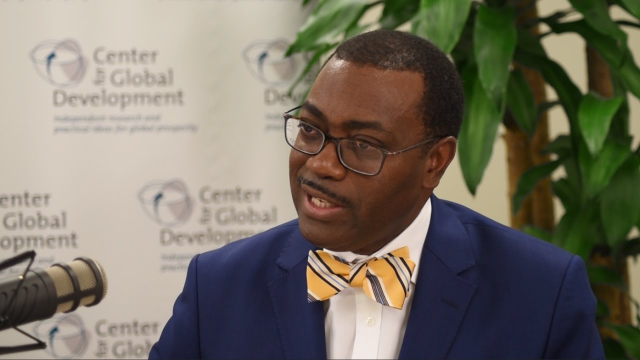The African Development Bank (AfDB) has called on African nations to take strategic positions in the global energy transition by shifting from raw mineral exports to processing and value addition.

The AfDB President, Dr Akinwumi Adesina, in a statement on Sunday, April 13, 2025, reiterated Africa’s crucial role in supplying strategic minerals needed for clean energy technologies.
“Africa is rich in critical minerals such as cobalt, bauxite, manganese, and vanadium. The Democratic Republic of Congo alone produces 70 per cent of the world’s cobalt.
“Africa must learn from countries like Indonesia, China, and Chile, which have successfully integrated into global value chains through deliberate policies.
“Indonesia banned raw nickel exports and mandated domestic processing, boosting downstream industries.
“China, which controls over 80 per cent of global refining capacity, used policy coordination and infrastructure investment to dominate the mineral processing industry,” he said.
According to Adesina, Nigeria has the potential to become a key player in solar panel production due to the local availability of required minerals and relatively low production costs.
He stressed the need for a clear critical minerals industrial policy to harness this potential and drive local manufacturing.
To ensure Africa’s competitiveness in the global energy transition, Adesina outlined five priority areas.
“They are: massive investment in energy infrastructure, development of critical minerals, industrialisation linked to clean energy, sound regulatory frameworks, and strong governance and community rights protection.”
He said that the AfDB, in collaboration with the African Union and the Economic Commission for Africa, was currently developing an African Green Minerals Strategy to guide these efforts.
Speaking on the rising cost of capital for African economies, Adesina lamented the persistent “Africa risk premium,” which results in investors facing three to five times higher costs than elsewhere.
“This perception is unfair. While Africa has risks, they are not higher than those in other regions. Misperception drives up capital costs and limits development financing,” he said.
He cited a UNDP report estimating that correcting this perception could save Africa 75 billion dollars annually in debt financing.
To address this, he said the African Union had approved the creation of the African Credit Rating Agency, which wiuld be professionally ran and provide objective credit risk assessments tailored to Africa’s real economic conditions.
In addition, Adesina announced the inauguration of the Africa Financing Stability Mechanism, developed by the AfDB at the request of the African Union, to provide financial safety nets for African countries.
“When fully operational, the mechanism will help refinance at least 10 billion dollars annually in debt service payments for the next decade,” he said.
Adesina reaffirmed the AfDB’s commitment to supporting Africa’s development through initiatives that” promote industrialisation, fair investment opportunities, and financial stability.”
By Lucy Ogalue
